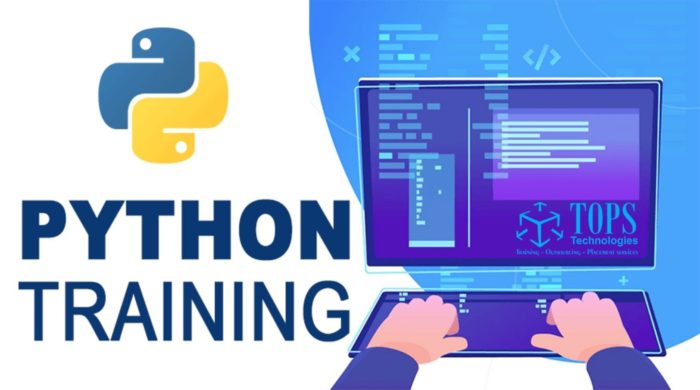
Python is one of the most popular, in-demand, open-source, and cross-platform programming languages and get the best python training in Bangalore.
For beginners, it’s easy to learn and can be integrated into other programming languages such as C/C++, ASP.net, and many more.
If you are a beginner and have no idea about programming languages, how they work, their syntaxes, etc, Python is something you can go for.
Once you finish your Python course, you will end up with many of the exciting opportunities to shape your career instead of being cramped with a single programming language.
Nowadays, Python is used by many of the tech giants like Google, Facebook, Instagram, Pinterest, Yahoo, IBM, Nokia and many more. Once you learn Python, you will have a lot of opportunities as these big companies offer good money to a Python programmer.
Now the question comes in mind is that how to go about learning Python language?
Firstly you need to understand what you need to learn and how to learn before you start training from best software training institute in Bangalore.
In this blog, my focus for you is to let you be a competent, skilled Python programmer so that you can easily get your dream job at any big company.
For beginners, who have never done coding before and want to learn Python programming language, you have to give a little extra effort. Knowing how to learn is equally important as same as what to learn is. Below is the list of few important learning strategies and steps you should follow that will help you to start your journey of becoming a competent Python developer:
Step 1: Know your area of interest
Before you start learning Python, try to figure out why you want to learn Python. Motivation matters!!!
Python can be used to develop various kinds of applications like web applications, UI based applications, software development, mathematical computations, and network programming, etc.
Select the area, in which you are interested and Python is used in that such as:
- Data Science
- Machine Learning
- Artificial Intelligence
- Mobile Applications Development
- Web Development
- Games Development
- Script and automation
- Testing
- Big Data and Hadoop
- Sensors/ Robots
Select one or two areas in which you are interested and want to grow your career. You will be eagerly waiting to learn that and eventually give your 100% in learning, so figure out the things you are interested in and go for Python learning.
Step 2: Learn the basic Python syntax
Before you go to the deep in Python, you need to learn basic Python syntax. Python syntaxes are easy- to-learn and simple to use. Learning basic Python syntaxes won’t require much time and effort. Usually, a little bit of effort and time is ok. But you have to learn the basic syntax before you move to the deeper areas of Python programming. The quicker you learn basic Python syntaxes, the faster you will learn Python.
If you require these syntaxes later in your complex programming, you can always recall to these basic Python syntaxes easily. Ideally, a beginner has to spend a few weeks in this step, the maximum one month, not more than that.
Also, make the note of what you learn every day, it will help you to plan your code before you move on to the computer screen. If you are planning to become a full-time Python developer, it will be highly beneficial to you.
Step 3: Go Interactive
As an absolute beginner to Python, you should interact with other people to discuss ideas and doubts. One of the biggest advantages of learning Python is that it has a community of a large number of techies. Your friends, other techies are the biggest asset for learning Python. An interactive Python shell will be one of the most important learning tools.
When you discuss something with a group of people, probably you will remember that discussion for a longer time. Also sharing ideas will let you have more ideas, more problems and solutions will be coming out in the discussion. Also, when you leave feedback, answers or any code in discussion forums on Python communities, it will be viewed by other Python developers, project managers, and Python experts. They will view your code; provide their feedback and suggestions by commenting on it. That will help enhance your Python knowledge.
Step 4: Write projects on your own
For beginners, when they have learned basic Python syntax, there are many small projects they can work upon. E.g. you can build small projects like calculator, notepad or anything else. It will be helpful to make you confident with Python.
Building projects are a great way to learn Python. Till the time you don’t use your knowledge, it will be much difficult to hold it. Projects will help you to clear Python concepts, learn new things and build a portfolio for you, which you can show to potential employers.
Once you feel that you are proficient with small projects, keep working on comparatively harder projects and progressively move to harder and harder. One day, you will be able to solve big and complex challenges using Python.
Step 5: Teach what you learn
Explaining something to someone else is a big way to learn things in a better way. It’s true with Python. When you are learning Python, it’s always better to teach the concept to someone else. You can do it in multiple ways. You can write blogs on Python concepts, create Python tutorials, taking online lectures, and create web pages for Python tutorials, creating videos on Python tutorial, or many others.
Each of the techniques will make your Python understanding better and clear the concepts.
So, above were the five important steps one should follow when they start learning Python. As learning Python is fun, and I think anyone even if they have no idea about programming and coding, can get a high level of expertise if they find the right inspiration.





